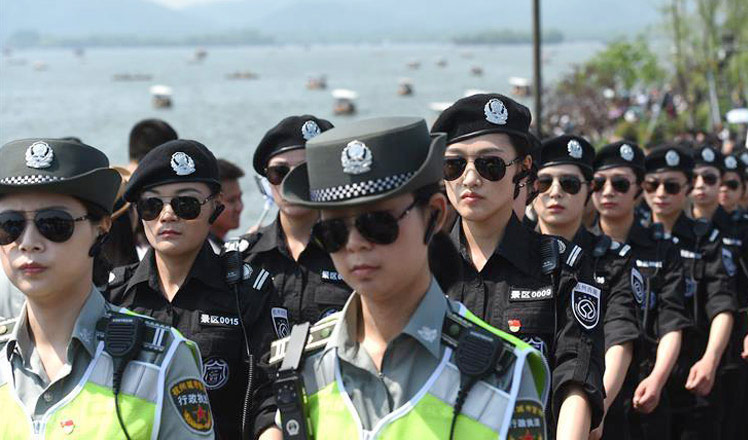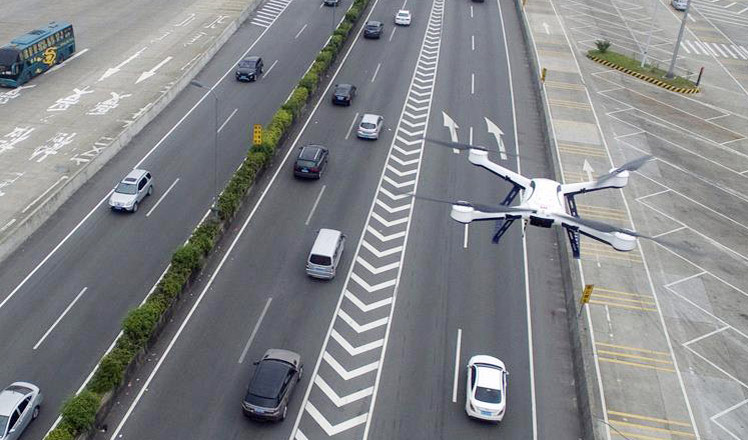Full picture
Updated: 2016-05-04 08:13
By Andrew Moody(China Daily)
|
||||||||
A US consultant's new book takes wide-angle view of Chinese economy from reform and opening-up to current policies, Andrew Moody writes.
Arthur R. Kroeber believes the debate about the Chinese economy is almost always polarized.
The founding partner and head of research of Gavekal Dragonomics, a Beijing research firm, and author of a new book, China's Economy: What Everyone Needs to Know, says as a result it is difficult to get the true picture.
"I think the biggest mistake, in general, is that people always think you can reduce China to one thing - it's good, it's bad, it is going to take over the world or it is going to collapse tomorrow," he says.
Kroeber, 54, spoke to China Daily in a meeting room of his company, which he helped establish at the Soho Nexus Center in 2002.
His book, published by Oxford University Press in April, is timely with huge international interest now in the Chinese economy, which intensified at the start of the year with a renewed bout of stock market volatility, which has recently abated.
"That is kind of good luck, I have to say. This project actually originated a couple of years ago. I was often asked by clients whether there was one book they could read to give them the basic facts about the Chinese economy. I never could come up with one," he says.
"There are obviously some dense academic tomes, which are quite good, but not very accessible to an ordinary reader and particularly not to the kind of business reader who wants a quick scan. So there was kind of gap in the market," he adds.
But his book of 319 pages, although an interesting read, is in no way just a beginner's guide. It is a genuine examination of the issues facing the country's economy from reform and opening-up in the late 1970s to today's many policy dilemmas.
"The problem is that people try to simplify China into one narrow storyline, which they would never think of doing, for example, with the United States, or any other large, complex economy," he says.
Kroeber, who grew up in an academic family in New York and is the grandson of Alfred L. Kroeber, a highly influential anthropologist, did not want to get into academia himself. After studying comparative religion at Harvard University, he became a freelance journalist, eventually coming to Beijing and starting the consultancy.
"I swore when I left college (that) I would never go to graduate school. Although I kept to that promise, I've wound up relocating many aspects of academic life in my professional career."
He says economics is also a subject that he reluctantly came to.
"I swore I would never do business journalism but I wound up in India doing freelance reporting. And I quickly came to realize you couldn't understand politics or the social environment unless you had an understanding of what the economic motivations of people were."
One of the major issues with the Chinese economy is slowing growth. The government has set itself the target of doubling the 2010 per capita income by 2020 in the current Five-Year Plan (2016-20), which would result in China being defined as a high-income country. To do this, it has to achieve 6.5 percent GDP growth in each of the next five years.
Some think, however, the government should move away from growth targets.
"They've had growth targets since the early 1980s and it has been a deliberate part of the development strategy. It was a way to motivate local officials and officials all the way up the line. It is similar to what Japan and South Korea did also," he says.
"I think now, however, everyone knows that growth is slowing to some new level but no one can quite agree on what that new level is, or should be."
There is now interest in whether China will soon regain its position as the world's largest economy, which it last held in about 1800.
"All economies were largely agrarian then and all agrarian economies then had more or less the same per capita income. So China with the biggest population had the biggest economy, although it had a pretty sophisticated preindustrial manufacturing economy for textiles and porcelain."
Kroeber predicts in his book that it might overtake the US in size as early as 2028.
"I think in an economic sense what is most significant is not the size of the Chinese economy but the scale of its trade and investment links with other countries. I think the most interesting statistic is that China is now the biggest trading partner of more countries in the world than any other country."
Kroeber rejects those who forecast that China could even become the richest economy by the 2070s.
"I would put money on it never even happening because no other developing country has been able to exceed the US in per capita trends. Japan is the most notable example because it did look like it would in the late 1980s, but it hit a wall. Most countries have flattened out at between 60 and 80 percent of the US level."
Contact the writer at andrewmoody@chinadaily.com.cn
(China Daily 05/04/2016 page20)
- UN urges DPRK to stop 'further provocative action'
- China stresses Putin's expected visit
- British FM visits Cuba for 1st time since 1959
- Trump attacks Clinton on gender, risking backlash from women
- Pirate radio poses surprising challenge in internet age
- DPRK's Musudan missile launch appears to have failed

 Female patrol team seen at West Lake in Hangzhou
Female patrol team seen at West Lake in Hangzhou
 Drones monitoring traffic during May Day holiday
Drones monitoring traffic during May Day holiday
 Sino-Italian police patrols launched in Italy
Sino-Italian police patrols launched in Italy
 Met Gala: Fashion in an Age of Technology
Met Gala: Fashion in an Age of Technology
 Photos from around China in April
Photos from around China in April
 Top 10 luxury cars at the 14th Beijing auto show
Top 10 luxury cars at the 14th Beijing auto show
 European castle-style campus wows in Southwest China
European castle-style campus wows in Southwest China
 Industrial city reinvents itself as green oasis
Industrial city reinvents itself as green oasis
Most Viewed
Editor's Picks

|

|

|

|

|

|
Today's Top News
Liang avoids jail in shooting death
China's finance minister addresses ratings downgrade
Duke alumni visit Chinese Embassy
Marriott unlikely to top Anbang offer for Starwood: Observers
Chinese biopharma debuts on Nasdaq
What ends Jeb Bush's White House hopes
Investigation for Nicolas's campaign
Will US-ASEAN meeting be good for region?
US Weekly

|

|







